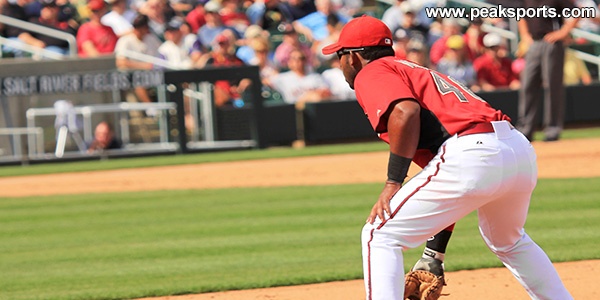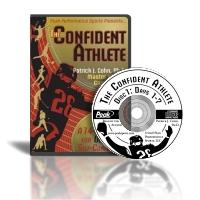
Don’t Let One Mistake Affect Your Performance
Does making a mistake affect your performance in competition?
Maybe you can refocus and be your best for the rest of the competition. Or possibly, one mistake turns into another and your performance spirals downward.
The thought of that mistake or the consequences of that mistake take the focus away from performing in the moment.
For example, making a mistake early in a competition can create doubts for how you will perform in the rest of the competition, “I just don’t have it today. It’s one of those days. I will continue making the same mistakes as usual.”
If you are unable to refocus on the next play, next routine or next race, you are bound to make more mistakes.
The bigger or more important the competition, the more likely you will follow up a mistake with an even more costly mistake. During playoff games, championships, rival games, top-level competitions or important matches, mistakes can take on additional significance for some athletes and challenge their composure.
Since every athlete will make many mistakes throughout a career, learning to re-focus your attention in the present is a critical mental skill to develop.
As the 2021 NBA season was winding down, the Denver Nuggets were contending for a playoff spot. In an interview Denver forward Aaron Gordon commented on how mistakes can affect a player’s performance.
GORDON: “On the court, you want to be icy. You want to be really cool. You want to be composed. And when your mental [state] is not right on the court, you do stupid things, like get technical fouls or compound mistakes. Like, say you miss a shot, you’re mad that you missed a shot, so you turn around and foul somebody 80 feet away from the basket.”
As you can see, athletes at every level need to learn how to maintain their composure and refocus to bounce back from mistakes.
Rebounding from mistakes and refocusing is a mental skill that requires mental training to learn and develop.
Rebounding from mistakes is comprised of three components:
1. The ability to quickly calm yourself: A quick calming strategy helps you keep your emotions in check. A deep breath is one method to calm an athlete’s mind and body.
2. The use of a phrase to move on: A cue can be a word or action that signals for you to let go of the last moment. An effective cue can be as simple as telling yourself, “Move on” or “That’s in the past.”
3. The ability to refocus: Refocusing is a matter of changing your focus from the past to the present moment. Refocusing is the hallmark of successful athletes.
Learn to develop these three components so you can respond better to mistakes.
Try relaxation techniques, cues and refocusing strategies in practice. Determine what strategies feel comfortable and effective and practice those skills in your training sessions.
If you can learn to manage mistakes in practice, you are closer to coping with mistakes in competition.
Related Articles on Mental Game:
- Embrace Healthy Competition within Your Team
- What Separates Elite Athletes from the Rest?
- Focus on What You Can Control in Sports
*Subscribe to The Sports Psychology Podcast on iTunes
*Subscribe to The Sports Psychology Podcast on Spotify
The Confident Athlete

“The Confident Athlete” consists of 2 audio programs that include 14 days of confidence fueling exercises and a simple to follow workbook that guides you through the 14 days, helps you apply the strategies, and customizes the exercises to your personal needs.
Let me help you put a stop to the confidence leak. You can learn to have greater levels of confidence in competition than you do in practice by identifying the specific ways you undermine your own confidence and how to convert your practice confidence into COMPETITIVE CONFIDENCE.
“The Confident Athlete” is a ground-breaking system to teach you how to think like a champion and have ultimate self-confidence every time you step on the playing field, court, track, or course. The confident athletes was developed for any athlete – junior to professional –that wants to gain confidence. However, coaches and sports parents can learn how to teach others to perform with ultimate confidence. Use my program if you want to bust a slump or just wanting higher or more consistent levels of self-confidence.
